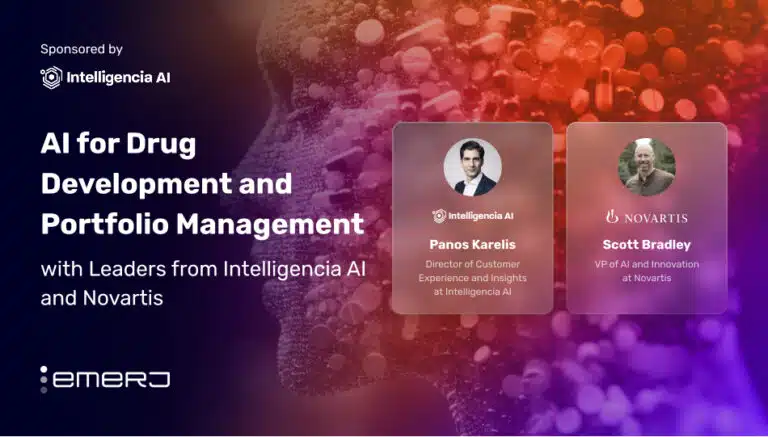Several key insurance carriers began to experiment with AI in the last decade, including Progressive, All-State, and State Farm. Although not as large as the banking and retail industries, the AI vendor landscape in insurance is growing.
Venture capital firms are investing tens of millions of dollars into startups that offer AI applications ranging from automated underwriting and customer onboarding to the ability for customer service representatives to search through numerous databases at once to find information on a customer.
At Emerj, the artificial intelligence research company, we’ve done extensive research into the AI vendor landscape across the insurance industry as part of our AI Opportunity Landscape work for multi-billion dollar clients. This article provides a snapshot into that research and gives an overview of the top 3 most funded AI companies in the insurance industry. Our analysis begins with Lemonade, which sells homeowner’s and renter’s insurance to consumers.
1. Lemonade – Homeowner’s and Renter’s Insurance Via Mobile App
Lemonade, founded in 2015, is a relatively well-known AI-driven insurance startup that has raised a respectable $480 million in venture funding. The company offers homeowner’s and renter’s insurance to consumers. It does business entierly through its mobile app on which customers can file claims. Lemonade claims it can process claims faster and provide faster payouts using AI.
Lemonade claims its services include multiple AI applications for different purposes. Customers can purportedly describe damage to their property to Lemonade’s”Jim” chatbot, starting a claim. The data is then run through a fraud detection algorithm in order to identify anything suspicious about the claim. Finally, the system determines a payout that is appropriate for the damage or loss the customer described.
Lemonade’s app can purportedly:
- Allow customers to start a claim with the tap of a button. The customer will be redirected to the chatbot to start the claim.
- Automatically approve claims if they are not too complex.
- Route customers with complex claims to human customer service representatives.
The short, 1-minute video below explains how Lemonade’s claims processing works:
2. WorkFusion – Document Digitization in Insurance
Founded in 2010, WorkFusion has raised $121 million in venture funding. The startup offers an AI platform called the Intelligent Automation Cloud, which the company claims can help insurance carriers improve their claims and appeals processes along with their KYC infrastructure. The software purportedly uses AI techniques such as machine vision in conjunction with robotic process automation (RPA). The original offering became available in late 2016 and has seen numerous iterations since then.
WorkFusion claims insurers that use Intelligent Automation can see the following benefits:
- Automatically taking and organizing new customer data. The software purportedly uses machine vision and optical character recognition (OCR) to digitize new paper documents and RPA to organize them automatically.
- Faster document verification. Intelligent Automation can also purportedly extract identification data from documentation such as passports and driver’s licenses. The company claims it can then retrieve data from the client’s database and identify any discrepancies.
The video below from WorkFusion explains how their software facilitates the intake of customer information:
WorkFusion lists a case study on its website in which it claims to have helped a major US healthcare company process their appeals on claim decisions more accurately. They purportedly used machine vision to scan appeals into its client’s system. Additionally, its RPA software organized the appeals into queues for adjusters to review. The case study states that the client healthcare company reduced their manual processing work by 85% and were able to reduce their appeals process by three minutes per claim.
3. Attivio – Enterprise Search in Insurance
Attivio, acquired by ServiceNow in 2019, was founded in 2008 and has raised $102 million in venture capital. The company offers natural language processing (NLP) software to insurance companies for enterprise search. This can purportedly help customer service representatives and claims adjusters find customer information that is important to their respective jobs. Attivio refers to this software as cognitive search.
The short, 1-minute video below explains how machine learning can enable enterprise search and provide context for more detailed results:
Attivio claims its cognitive search platform can benefit insurers with the following capabilities:
- Unify enterprise data: It is much easier to locate customer data from an enterprise database when all the information is organized in one place. For customer service workers, this means easier access to customer profiles and account information. Claims adjusters also benefit in that they can more easily identify duplicate claims or incomplete information within a claim.
- Insights on search results: The software can purportedly show users insights on the top search results from their keywords. For example, a claims adjuster might find that the most recent claim they have worked on contributes to a trend of inflated payment amounts. This might give the adjuster context into how they adjust the amount depending on the details of the incident.
Header Image Credit: Claims Mag





















